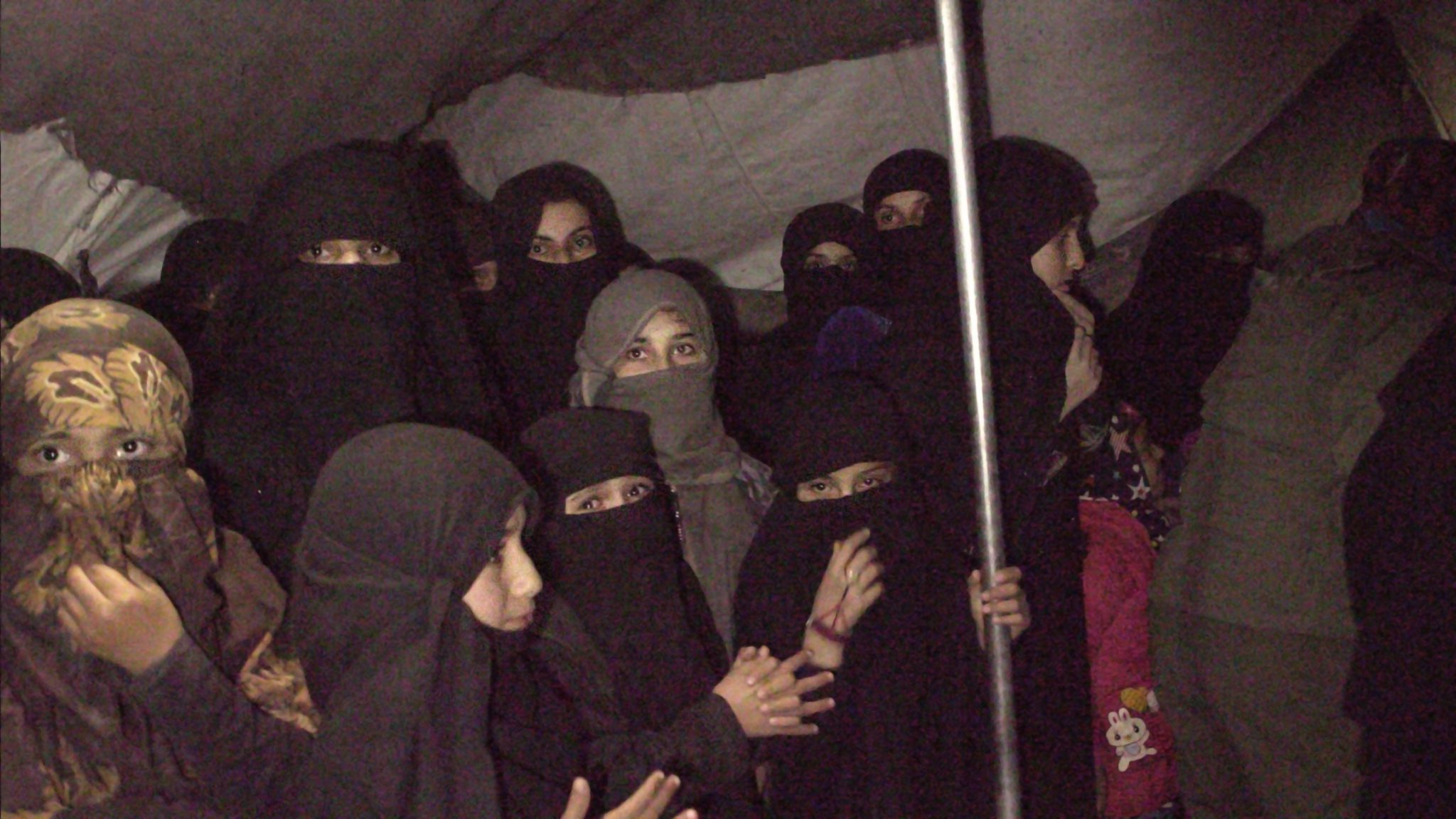The mission: go into a camp filled with Daesh (ISIS) supporters and rescue Yazidi girls and women held as sex slaves. Sabaya won the directing award for World Cinema Documentary for Hogir Hirori at the Sundance Film Festival. Billed as a docu-thriller, the film shines a light on the plight of thousands of young women and on people who are trying to aid them.
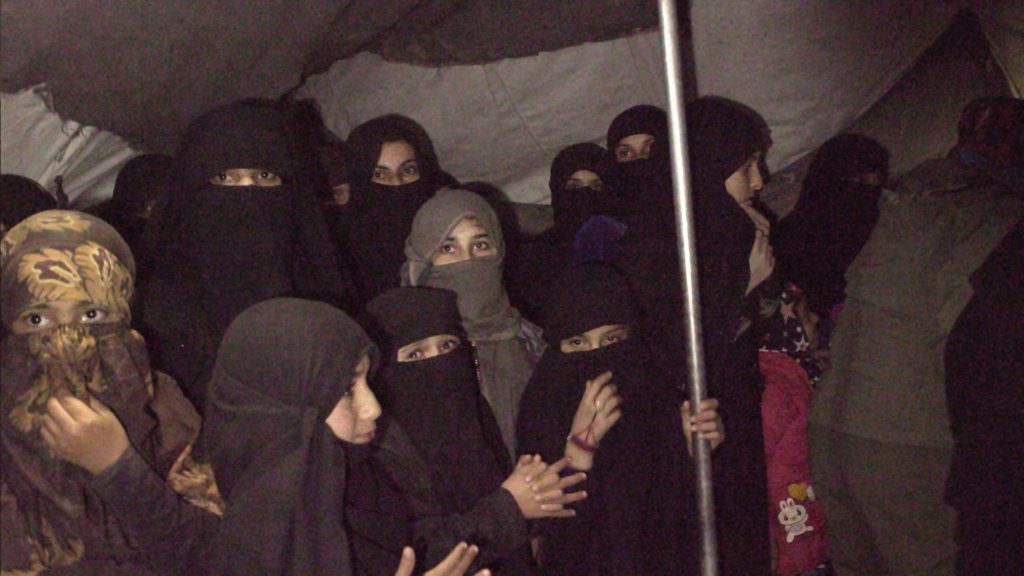
While fighting in Iraq, Daesh killed thousands of Yazidi men and took the Yazidi young women to serve as sex slaves (Sabaya). Some of the women have been held for five years. Now some of them are part of the 73,000 people held in the Al-Hol camp in Syria. We watch as Mahmud and Ziyad, two men from the Yazidi Home Center, aided by female infiltrators in the camp, make raids (usually at night) to liberate these women. The camp is filled with Daesh supporters (there are more in the surrounding countryside), so this is a hazardous undertaking. The men go in equipped basically with a phone and a handgun.
The film certainly has a thriller aspect with the forays into Al-Hol to find these women. It it also contrasts that tension with the daily life of Mahmud and his family?making meals, being together with children. Mahmud?s wife and mother help the rescued women transition back to the world of freedom before they are reunited with family.
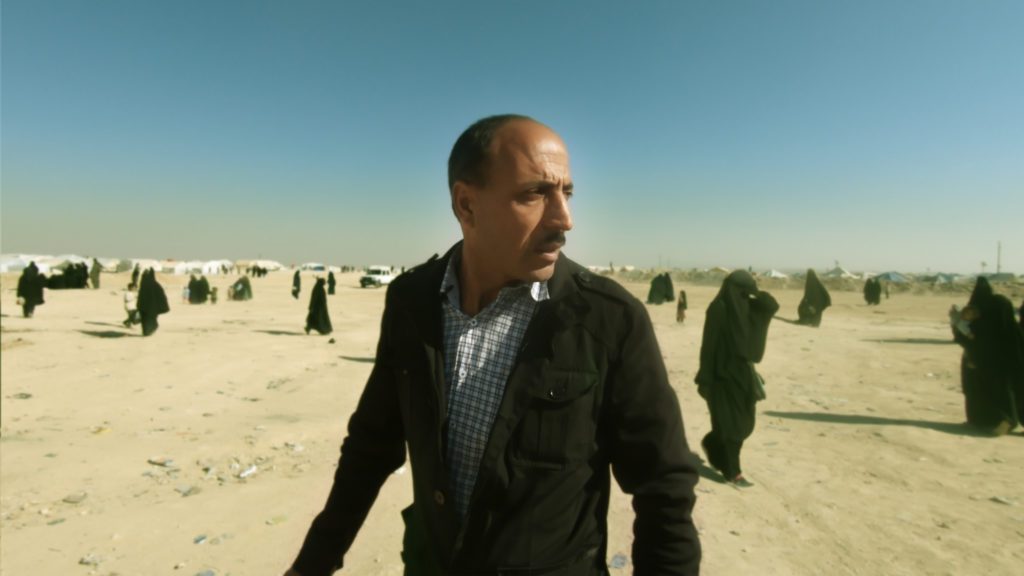
The plight of the Yazidi has become an international cause. (A good film to learn about what has happened to this group is On Her Shoulders.) They are a minority within a minority. They are extremely insular, not accepting outsiders as part of their culture. That comes into play in one part of the film when one of the women rescued has a child who was fathered by a Daesh fighter.
We learn at the end of the film that the group saved 206 enslaved women, 52 with children. But 2000 still remain unfound.
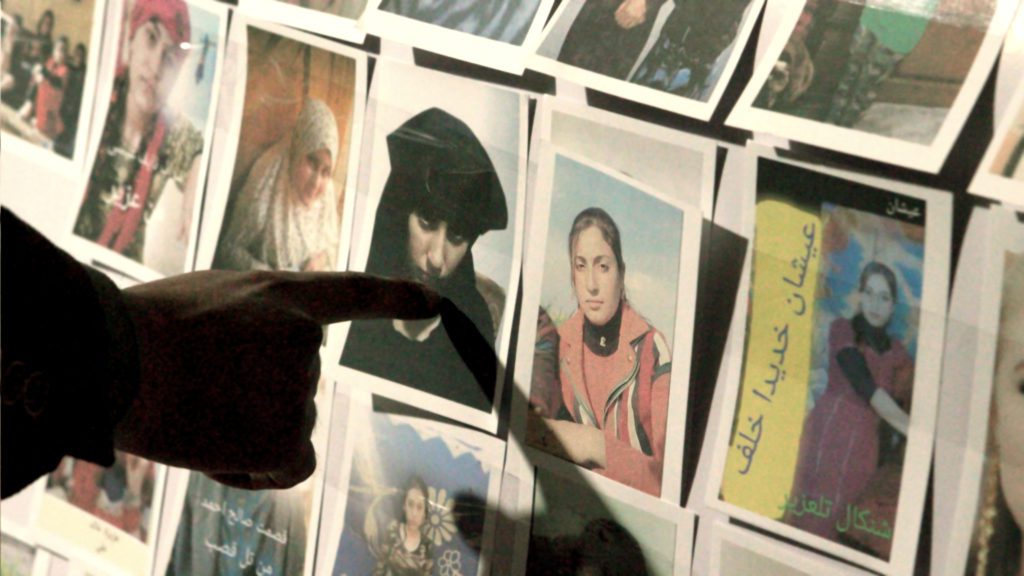
This is an ongoing reminder of the inhumanity that is a part of war in general, and specifically as it is practiced by ISIS. While we may think battles have been won, the aftermath continues to be painful for many. That is clear in this film when at the beginning we hear an announcement on the radio that Daesh has been defeated in Syria, but as we see Mahmud and Ziyad on their raids we know that that defeat is less than final.
Religion (or more precisely, the exploitation of religious ideas) certainly plays a role in all of this. The reason Daesh uses to enslave these women is that because they are not Muslim, such treatment is permissible. That is not a general understanding within Islam. That is one of many examples of the ways that religious people misuse messages of goodwill to create malevolence.
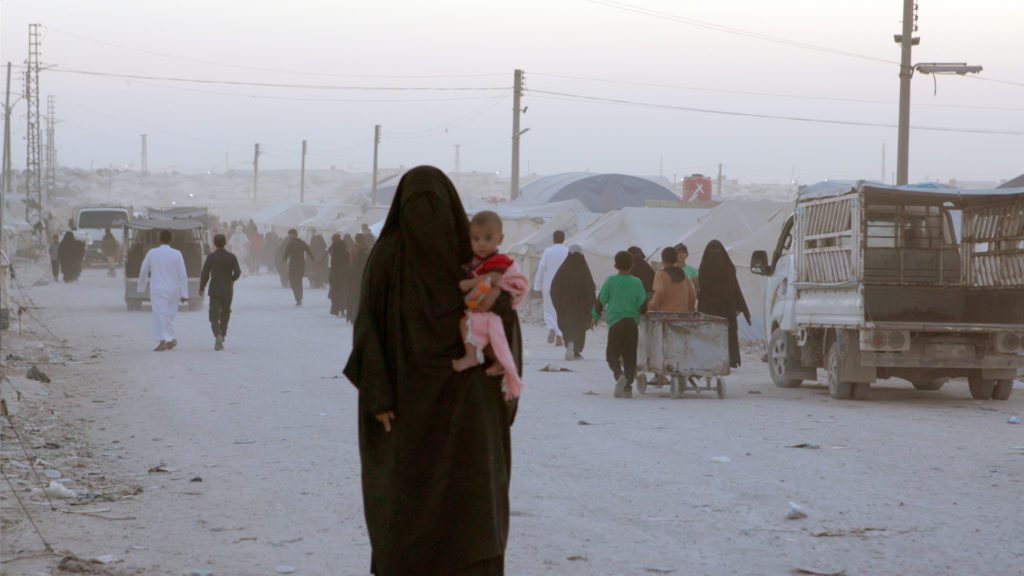
Sabaya is opening in select theaters.
Photos courtesy of MTV Documentary Films.

